The Ultimate Guide to Opening a Record Store: From physical store to Online Ventures
The resurgence of vinyl records has made opening a record store a potentially lucrative business venture. This guide will cover everything you need to know about opening a brick-and-mortar record store, as well as how to start an online record store. Whether you're looking to open a traditional shop or take advantage of the digital marketplace, we've got you covered. Let's dive in!
-
Planning Your Record Store Before you open a record store, it's crucial to create a detailed business plan. This will help you assess the costs, potential revenue, and necessary steps to make your store a reality. Be sure to include the following in your plan:
-
Market analysis: Research your local market, target audience, and competitors. Determine the demand for a record store and the specific niches you want to focus on (e.g., rare vinyl, new releases, or specific genres).
-
Location: For a brick-and-mortar store, choose a location with good visibility, foot traffic, and reasonable rent. For an online store, select a reliable e-commerce platform and domain name.
-
Inventory: Outline your sourcing strategy, including how you'll find records, negotiate with distributors, and manage your inventory. Consider whether you'll sell used records, new releases, or a mix of both.
-
Marketing: Develop a marketing strategy that includes digital advertising, social media, and local events to promote your store and attract customers.
-
Legal and Financial Considerations Before opening a record store, take care of the legal and financial aspects of running a business:
-
Register your business: Choose a name for your store and register your business with the appropriate government authorities. This process will vary depending on your location.
-
Obtain permits and licenses: Check local regulations to determine which permits and licenses you'll need to operate your store, such as a resale permit or a business license.
-
Set up a business bank account: Separate your personal and business finances by opening a dedicated bank account for your record store.
-
Insurance: Obtain the necessary insurance coverage, such as general liability insurance, to protect your business.
-
Setting Up Your Store With your planning complete, it's time to set up your brick-and-mortar or online record store:
-
Brick-and-mortar: Design your store layout with the customer experience in mind. Create an inviting atmosphere with comfortable listening stations, organized displays, and attractive signage. Be sure to invest in a reliable point-of-sale (POS) system, shelving, and inventory management tools.
-
Online: Design a user-friendly website with easy navigation and high-quality images of your records. Implement a secure shopping cart system and integrate shipping options, payment gateways, and inventory management tools.
-
Grand Opening and Marketing Strategies Once your store is set up, plan a grand opening event to attract customers and generate buzz:
-
Promote your event on social media, through email marketing, and with local advertising.
-
Offer exclusive discounts, giveaways, or in-store performances to entice customers to visit your store.
-
Network with local music enthusiasts, musicians, and record collectors to create a loyal customer base.
-
Ongoing Operations After your successful opening, focus on growing and maintaining your record store:
-
Continually update your inventory to keep customers engaged and coming back for more.
-
Offer excellent customer service, knowledgeable staff, and a welcoming environment.
-
Promote your store through social media, email marketing, and community events.
-
Continually analyze your business performance and adjust your strategies as needed.

-
Expanding Your Business
As your record store grows and becomes more successful, consider expanding your business in various ways:
-
Open additional physical locations in other neighborhoods or cities with a demand for a record store.
-
Collaborate with local musicians, artists, or record labels to host exclusive in-store events, such as album release parties or live performances.
-
Diversify your product offerings by including music-related merchandise, such as posters, apparel, or turntable accessories, to appeal to a wider range of customers.
-
Develop a loyalty program or membership system to reward your most dedicated customers and encourage repeat business.
-
Explore partnerships with other businesses in the music industry, such as concert venues or recording studios, to cross-promote each other and expand your customer base.
-
Staying Connected with the Music Community
One of the keys to a thriving record store is maintaining strong connections with the local and online music communities. Here are some ways to stay connected:
-
Attend industry events, such as music festivals, conferences, and trade shows, to network with professionals, stay informed about new releases, and discover emerging talent.
-
Foster relationships with local musicians, record labels, and distributors to ensure you have access to the latest releases and exclusive deals.
-
Engage with your customers on social media, through email newsletters, and in-store to stay informed about their preferences, solicit feedback, and share news about upcoming events or promotions.
-
Become an active member of online forums, social media groups, and other platforms where music enthusiasts and collectors congregate. Share your expertise and insights while promoting your store in a genuine, non-intrusive manner.

-
Building Your Brand
A strong brand identity is essential for the success of your record store. Here are some tips to help you build a recognizable and memorable brand:
-
Develop a unique and appealing logo that represents your store's personality and values. Use consistent colors, fonts, and design elements throughout your store, website, and promotional materials.
-
Craft a compelling brand story that showcases your passion for music and the inspiration behind opening your store. Share this story on your website, social media channels, and in-store displays.
-
Offer exceptional customer service that distinguishes your store from competitors. Train your staff to be knowledgeable, friendly, and attentive to customers' needs.
-
Establish your store as a resource for music enthusiasts by hosting workshops, discussions, or listening parties that encourage community engagement and showcase your expertise.
-
Embracing Sustainability
Incorporating sustainable practices into your record store operations can be beneficial for the environment, your customers, and your bottom line:
-
Source eco-friendly materials for store displays, packaging, and promotional materials.
-
Consider offering a vinyl record recycling or buyback program for customers to trade in their old records for store credit or discounts.
-
Implement energy-saving measures, such as LED lighting or energy-efficient heating and cooling systems, to reduce your store's carbon footprint and save on utility costs.
-
Partner with local environmental organizations to promote sustainable practices within the music community and raise awareness about the importance of responsible consumption.
-
Adapting to Industry Trends
The music industry is constantly evolving, and staying informed about the latest trends is crucial for the long-term success of your record store:
-
Monitor industry news, blogs, and podcasts to stay updated on emerging artists, album releases, and new formats or technologies.
-
Offer pre-orders for highly anticipated albums, exclusive limited editions, or special colored vinyl to attract dedicated fans and collectors.
-
Stay informed about changes in music consumption habits, such as the rise of digital streaming or new audio formats, and adapt your product offerings accordingly.
-
Experiment with new ways to engage customers, such as offering curated playlists, personalized recommendations, or virtual reality experiences that enhance the music listening experience
-
Leveraging Social Media and Online Presence
Maximizing your record store's online presence is vital in today's digital age. Utilize social media platforms and other online channels to reach a wider audience and increase brand visibility:
- Create engaging content on platforms such as Instagram, Facebook, and Twitter to showcase your inventory, share news about upcoming events, and connect with your customers.
- Use YouTube or Twitch to host live streams, share behind-the-scenes footage, or showcase in-store performances and events.
- Develop a blog on your website to share industry news, album reviews, and interviews with musicians. This will position your store as an authority in the music industry and drive organic traffic to your site.
- Collaborate with influencers, musicians, or other record stores to expand your reach and attract new customers.

-
The Importance of Networking
Cultivating relationships within the music industry is essential for the success of your record store. Networking can lead to valuable partnerships, exclusive deals, and increased visibility:
- Attend industry events, such as conferences, workshops, or networking mixers, to connect with other professionals and stay informed about the latest trends and opportunities.
- Join local business associations or chamber of commerce organizations to network with other entrepreneurs and gain access to valuable resources and support.
- Partner with local venues, radio stations, or music schools to co-host events, sponsor concerts, or collaborate on promotional campaigns.
-
Fostering a Loyal Customer Base
Building and maintaining a loyal customer base is the backbone of a successful record store. Here are some strategies to encourage customer loyalty:
- Offer a loyalty program that rewards repeat customers with discounts, exclusive access to limited edition releases, or invitations to special events.
- Send personalized email newsletters or promotions to customers based on their purchase history, preferences, and interests.
- Encourage customers to leave reviews and testimonials on your website, social media platforms, or review sites like Yelp or Google My Business. Positive reviews can help attract new customers and build trust in your brand.
- Engage with your customers online and in-store by asking for their opinions, addressing their concerns, and responding to their feedback in a timely and professional manner.
-
Analyzing and Improving Store Performance
To ensure your record store remains successful and profitable, it's essential to regularly analyze your store's performance and make improvements where needed:
- Track key performance indicators (KPIs), such as sales revenue, foot traffic, average transaction value, and inventory turnover, to measure your store's success and identify areas for improvement.
- Conduct regular customer surveys or solicit feedback through social media to better understand your customers' needs, preferences, and satisfaction levels.
- Identify and address inefficiencies in your operations, such as inventory management, staffing, or store layout, to optimize your store's performance and customer experience.
By continuously monitoring and improving your record store's performance, you can ensure its long-term success and profitability in the competitive music retail market.

-
Exploring Additional Revenue Streams
Diversifying your record store's revenue streams can help increase profits and ensure financial stability. Consider the following ideas:
- Offer vinyl cleaning and maintenance services, such as professional cleaning or cartridge alignment, to provide added value to customers.
- Expand into related product categories, such as turntables, speakers, headphones, and other audio equipment, to cater to a broader range of music enthusiasts.
- Host workshops or classes on topics like vinyl collecting, DJing, or music production to create additional revenue opportunities and strengthen your store's reputation as a music industry authority.
- Create an e-commerce platform to sell records and merchandise online, reaching customers beyond your local market and generating additional sales.
- Sell to online Vinyl record marketplaces (Discogs, Amazon, Ebay, Vinylom)
-
Prioritizing Customer Experience
A memorable and enjoyable customer experience can set your record store apart from the competition and encourage repeat visits:
- Train your staff to be approachable, knowledgeable, and passionate about music, ensuring they can provide expert recommendations and assistance.
- Create a comfortable and inviting atmosphere with seating areas, listening stations, and easy-to-navigate displays that encourage customers to spend time browsing and discovering new music.
- Organize in-store events such as listening parties, meet-and-greets, or album signings to create memorable experiences and foster a sense of community among your customers.
- Offer personalized services, such as curated recommendations or special orders, to make customers feel valued and cater to their unique tastes.
-
Staying Resilient and Adaptable
In a constantly changing industry, it's crucial to remain resilient and adaptable in the face of challenges and evolving trends:
- Stay informed about shifts in the music industry, consumer preferences, and technological advancements to ensure your store remains relevant and innovative.
- Be prepared to pivot or adjust your business model in response to new opportunities or challenges, such as fluctuations in the vinyl market or changes in customer behavior.
- Foster a culture of adaptability and innovation within your team, encouraging staff to contribute ideas, share feedback, and stay engaged with industry trends.
By staying resilient and adaptable, you can navigate the challenges of the music retail industry and ensure your record store's continued success.
-
Harnessing the Power of Data
Utilizing data-driven insights can help optimize your record store's operations, marketing efforts, and inventory management:
- Collect and analyze customer data, such as purchase history and preferences, to better understand your target audience and tailor your marketing campaigns accordingly.
- Use sales data to identify top-selling products, seasonal trends, and emerging genres, allowing you to make informed inventory decisions and capitalize on new opportunities.
- Monitor website analytics and social media engagement to assess the effectiveness of your online marketing efforts and adjust your strategy as needed.
By leveraging data, you can make more informed decisions and improve your record store's overall performance.
-
Embracing Omnichannel Retail
Adopting an omnichannel retail strategy can help you reach customers through multiple touchpoints and create a seamless shopping experience:
- Integrate your brick-and-mortar and online stores, allowing customers to browse and purchase products on your website and pick them up in-store, or vice versa.
- Offer consistent pricing, promotions, and inventory across all channels to ensure a unified customer experience.
- Use social media, email marketing, and in-store displays to promote both online and in-store offerings, encouraging customers to engage with your brand across multiple platforms.
An omnichannel approach can help you stay competitive in the evolving retail landscape and cater to the changing needs of your customers.
-
Collaborating with Local Businesses
Forming partnerships with other local businesses can help you expand your reach, support your community, and create unique customer experiences:
- Collaborate with nearby cafes, bars, or restaurants to co-host events, such as themed listening parties, live performances, or vinyl brunches.
- Partner with local art galleries or creative spaces to showcase local artists' work in your store, creating a visually appealing environment and supporting the local arts scene.
- Work with neighboring businesses to organize joint promotions or events, such as sidewalk sales or neighborhood block parties, to attract new customers and foster a sense of community.
By collaborating with other local businesses, you can strengthen your store's presence in the community and create mutually beneficial opportunities for growth.
In summary, the key to a successful record store lies in thorough planning, attention to customer experience, and adaptability in the face of industry changes. By focusing on building a strong brand, embracing sustainability, leveraging data, and forming strategic partnerships, you can create a thriving record store that resonates with music lovers and remains profitable for years to come. Regardless of whether you opt for a brick-and-mortar shop or an online store, your record store can become a beloved fixture in the music community and a rewarding business venture.
I wish you every success!

Yannis Pantazis
Founder of Vinylom
------------------------------------------------

BUY & SELL Vinyl Records and more!
----------------------------------------


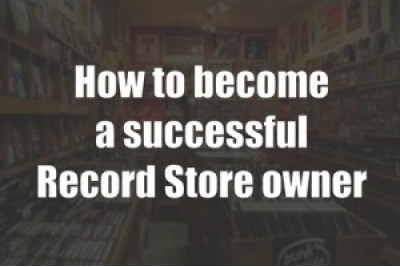

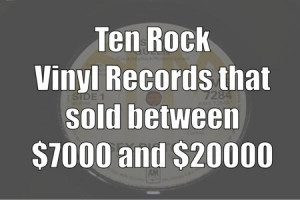
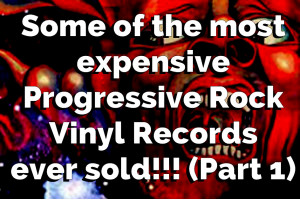

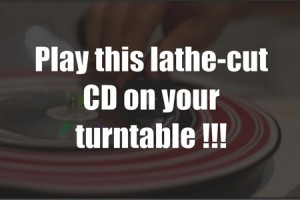
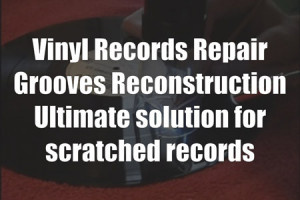
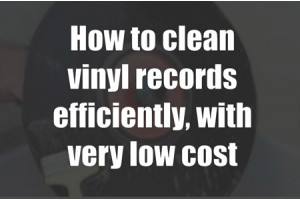
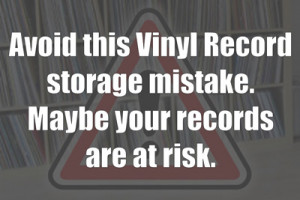
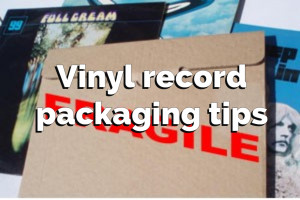
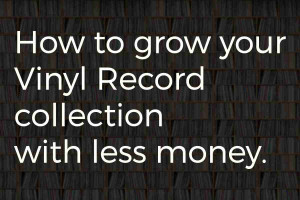
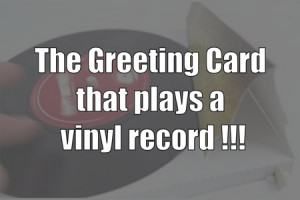



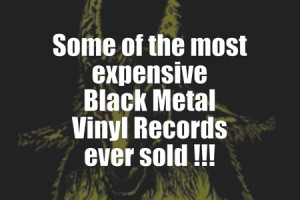
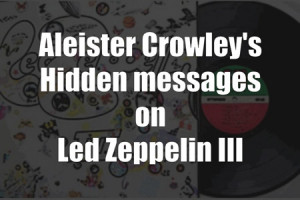
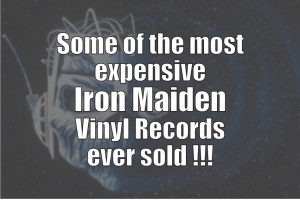

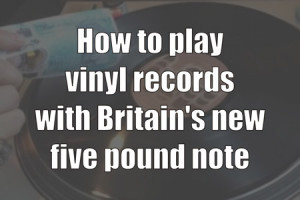
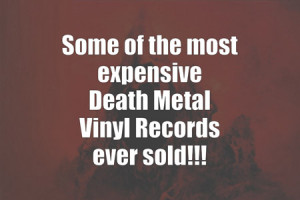
Comments
Leave A Comment